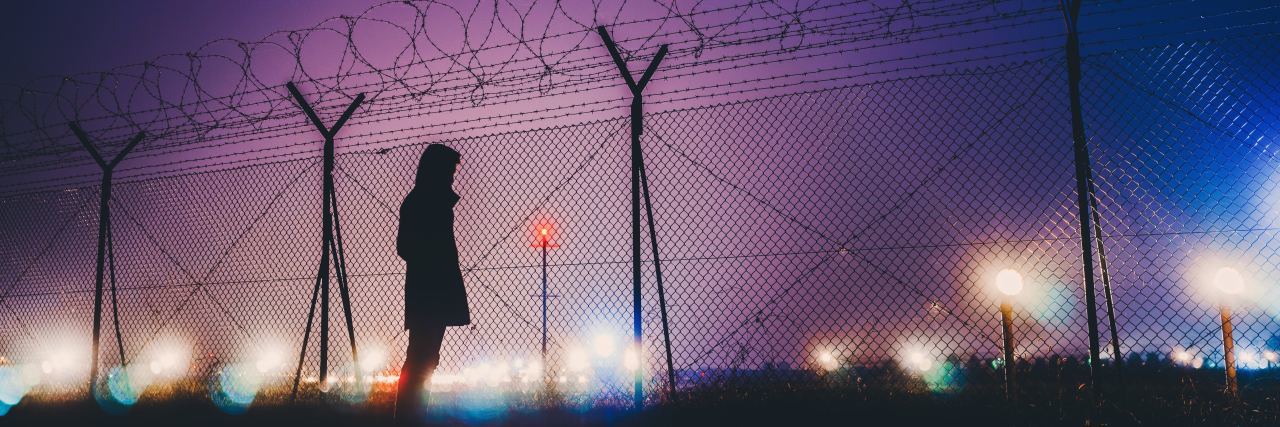Why Setting Boundaries Is Important for Mental and Physical Self-Care
We all know that setting boundaries in our lives is crucial to our personal growth. I’ve spent the last 12 years in therapy learning how to create them, along with learning about myself.
§Having set boundaries in life is a way to measure limits — the least and the most of what you will and will not accept. Think of them as setting life standards. The same description can be applied to every aspect of your life because, in order to have healthy relationships, boundaries are necessary. Aside from interpersonal relationships, this also includes your relationships with work, food, exercise, time, money and space. Above all, setting boundaries is a form of self-respect.
With interpersonal relationships, if you are a giving person by nature, you experience joy and fulfillment when you give to others. But what happens when you are giving to someone who only knows how to take? If you are constantly giving, you are being tapped emotionally, and you need to be replenished and refilled. If you don’t, you will reach a point of emptiness and it will be impossible to give as much as you once did. You risk burning out and hardening yourself in order to survive. More importantly, you cannot continue to give from an empty cup, and there are people who don’t know when to stop taking.
As someone who has battled lupus nephritis for the past 22 years, I have always wanted to help others who struggle. I’ve experienced serious struggle with my chronic autoimmune illness, and I’ve seen darkness, but I’ve persevered. I want to encourage and inspire people who are going through similar struggles to keep pushing, fighting and believing things will improve.
However, I’ve learned over the years that as much as I aspire to help others, they have to want to be helped. I’ve met people who, no matter what I’ve said or how much I’ve tried to help, they seem to have wanted to stay in the same place. They preferred their life of complaining and dwelling on the bad instead of trying to make a positive change. In those situations, I had to walk away and accept I could not do anything to help those people.
With family and friends, I used to be someone who always helped and went out of my way to help, no matter how I was feeling. I used to think if I shifted my focus and did for others, the pain wouldn’t affect me as greatly. When I ignored and pushed aside my own pain to please others, however, things got worse for me. I needed to step back and think of myself and what was best for me, instead of trying to help everyone else. Even with family and friends, we need to set limits on how much we can give, and how much we can physically and emotionally take.
We will experience loss of many relationships throughout the course of our lives, some unexpected and some by choice. We lose family, pets, friends, jobs, people we love, money, and sometimes we can lose ourselves; that’s the worst loss of all. In learning to set boundaries in my own life, I’ve walked away from people and situations that no longer served me. I have walked away from situations and changed my outlook on life aspects I knew would have a negative impact on my well-being and health, whether it was diet or fitness regimens, negative job dynamics I found myself in or stressing about things that were out of my control. If I found I was in danger of losing myself because of certain actions, I quickly shifted mindset and went down a new path. Nothing is worth losing ourselves over.
For me, recognizing and implementing these boundaries helped me focus on what was important and learn to let go of what wasn’t. They taught me to avoid the bare minimum and the extreme. With people, I know I cannot save anyone; I can only save myself. I can’t tell people what to do, what steps to take with their health, what choices to make. I’ve spent years working with my own medical team, learning through therapy and focusing inward to try to figure out my own steps.
The simple truth is we cannot rely on others to save us, show us the way or give us the answers. The steps to achieve what we seek are ours, and ours alone. We achieve that which we seek by setting up proper methods and ways, as well as boundaries. We learn from recognizing what we will and will not accept, how far we are willing to go and when we must stop. In the pursuit of goals, giving up does not always mean failure. It means we’ve exhausted every option, asked for help and understood it’s not conducive to our growth to continue on in the same manner. It means following the standards, the boundaries, we have set and accepting there is nothing left to do and we have nothing left to give.
Every aspect of our lives, every relationship, should be subjected to the standards we have set to promote our growth, interpersonal relationships being the pinnacle of what we think of when we think of boundaries, but also every other relationship we face with intangible aspects. Most important of all, remembering to recognize the most important relationship we need to focus on is the one we have with ourselves. Remembering we cannot give from an empty cup, remembering to prioritize our own well-being and health, and living by the standards we have set.
A version of this article was previously published on Medium.
Photo by Alessio Lin on Unsplash

